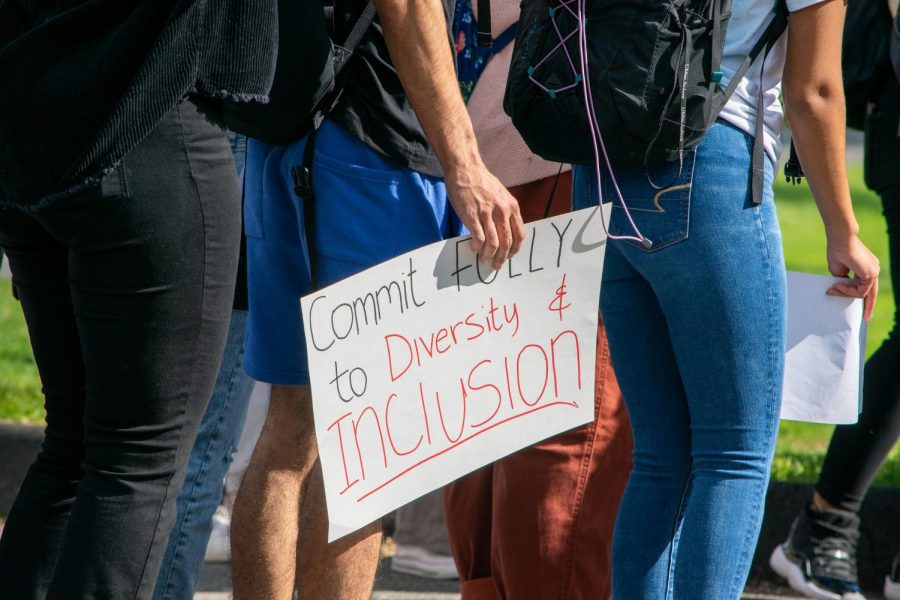George Santayana, a famous Spanish philosopher, once said, “Those who cannot remember the past are condemned to repeat it.” The quote has been repeated many times, reflecting not just our pasts but the entirety of human history — meaning that if we do not remember the lessons our ancestors have given us, we are destined to make the same mistakes.
The United States is a nationalistic country, which trickles into our school systems as seen by the Pledge of Allegiance and American flags in every classroom, along with red, white and blue themed days for “spirit week” in high schools across the country. All of these are easy-to-spot forms of nationalism, but what we don’t realize is that we were also spoon-fed implicit nationalism through our history classes.
High school history classes tend to focus on glorifying America, selling it as the shining star of freedom, the hero in the history of our world. Our history classes only look at the good America has done, never really the bad. A lot of our nation’s history is laced with racism, something many Americans would rather ignore, as seen by the conflicts over the accuracy of critical race theory.
When our curriculums are censored, the country loses important truths that shape our understanding of the world and allow people to believe some things didn’t happen, weren’t that bad, or were far in the past. That mindset is far from accurate, as many atrocities committed by the government and people in this country have personal and systematic effects even today, perpetuating hatred and violence.
Even when these topics are discussed, they are usually treated with some distance. The black and white images of Martin Luther King Jr. and Malcolm X allow some to believe that they are far in the past. But the Civil Rights Movement was only 50 years ago, meaning that there are many people alive today who have seen the struggles of the movement, such as Ruby Bridges — the first African American child to desegregate William Frantz Elementary School in Louisiana— who is turning 68 this year. She is alive and well and still fighting for change in America, disrupting the idea that segregation is something distant from ourselves.
In northern states like Massachusetts, people tend to perceive issues like the Civil Rights Movement as irrelevant to themselves, but that’s because it is swept aside in history. Sweeping things under the rug hits close to home when it comes to the Boston busing crisis.
In 1974, Bostonians pelted eggs, bricks and bottles at African American students that were being transported to schools in white neighborhoods. The integration of Black and white students in schools was enacted to fight back against geographical segregation in the city, but instead it revealed the racism present in northern states that isn’t talked about in classroom settings. Many regions of the United States don’t associate themselves with the racist atrocities of the past because they associate racism with southern states. But that’s a lie: the North had sundown towns, segregation and redlining, all of which kept Black people oppressed. When history is not taught right, people perceive cruelties as something they can separate themselves from, ruining their perceptions and preventing them from taking responsibility and action.
Perceptions get more warped as our history classes obscure historic events for their graphic and harsh nature. Most people don’t learn about the Tulsa Massacre that saw the destruction of Black businesses, homes and lives in a race riot — upturning the livelihoods of many Black Tulsans and setting back any trace of civil rights progress in the town. The violence showed that no matter the hoops Black Americans jumped through to gain the same economic and social rights as their white peers, they could still have them taken away in an act of racially-motivated rage.
More hidden are the American eugenics movement that saw the forced sterilization of women of color in the early 20th century; and the USPHS Syphilis Study at Tuskegee that saw the nonconsensual infection of Black Americans, which had long term health effects on the community. Both of the acts — approved by science and the government — created a distrust towards the medical community and had generational effects on many people of color.
But Americans don’t learn about these negative parts of American history, so they don’t understand the full social ramifications racism has had and still has on this country. Instead, we are raised to believe America is an all mighty force rather than something that can hurt communities, giving us a one-dimensional perspective on our history and on racism. These acts are a part of our country, not a part of our distant past that we can forget about. It’s not a bad thing to learn about the truth of our nation — in fact it’s important, because it stops us from perpetuating inaccurate beliefs. It gives us space to learn and grow as a nation, because if we forget about history, we will just repeat it.
Lily Fitzgerald can be reached at [email protected].


















